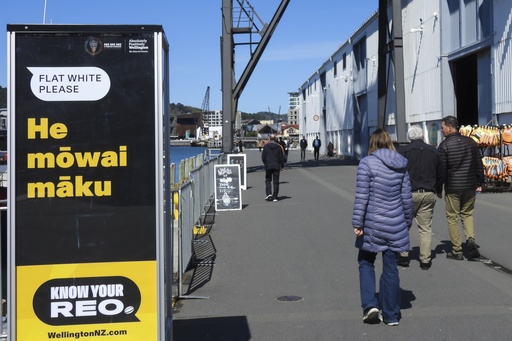On the cusp of New Zealand’s M?ori language celebration week, right-wing political leaders in the country have directed public agencies to halt affirmative action policies for M?ori individuals, despite their disadvantaged status across various aspects. The lawmakers, including Prime Minister Christopher Luxon of the National party, expressed their support for the Indigenous language on social media platforms. This move comes amidst a rising interest in M?ori culture and language, which has shifted from near extinction to being an integrated part of daily life in New Zealand.
However, this surge in cultural appreciation contrasts with a divisive debate around race that is stirring within New Zealand. This discord is fueled by the polarized political landscape in Western democracies and a backlash against the previous left-wing government. Critics of special treatment for M?ori argue that it fosters social division and unequal rights, leading to the current government scaling back recognition of M?ori in policies and laws, which could compromise the country’s reputation in Indigenous matters.
The strained relationship between the M?ori community and the government, a coalition between Luxon’s party and others, is seen as regressive compared to the progress made in the past two decades. While public support for M?ori culture has surged, dissenting voices, including some of M?ori descent, have capitalized on discontent around policies favoring M?ori rights. This discord stems from differing interpretations of the Treaty of Waitangi, the foundation of New Zealand’s legal framework, signed in 1840 between M?ori tribes and the British Crown.
The recent directive to public servants to cease race-targeted policy initiatives, unless race is proven as the sole factor contributing to an issue, is raising concerns about potential erosion of M?ori rights. Critics argue that such measures could reverse gains made in addressing disparities in health and well-being between M?ori and non-M?ori individuals. As the political landscape evolves, including proposed legislation redefining the Treaty of Waitangi’s principles, the debate around M?ori rights and representation continues to intensify, contributing to growing tensions in New Zealand’s society.
